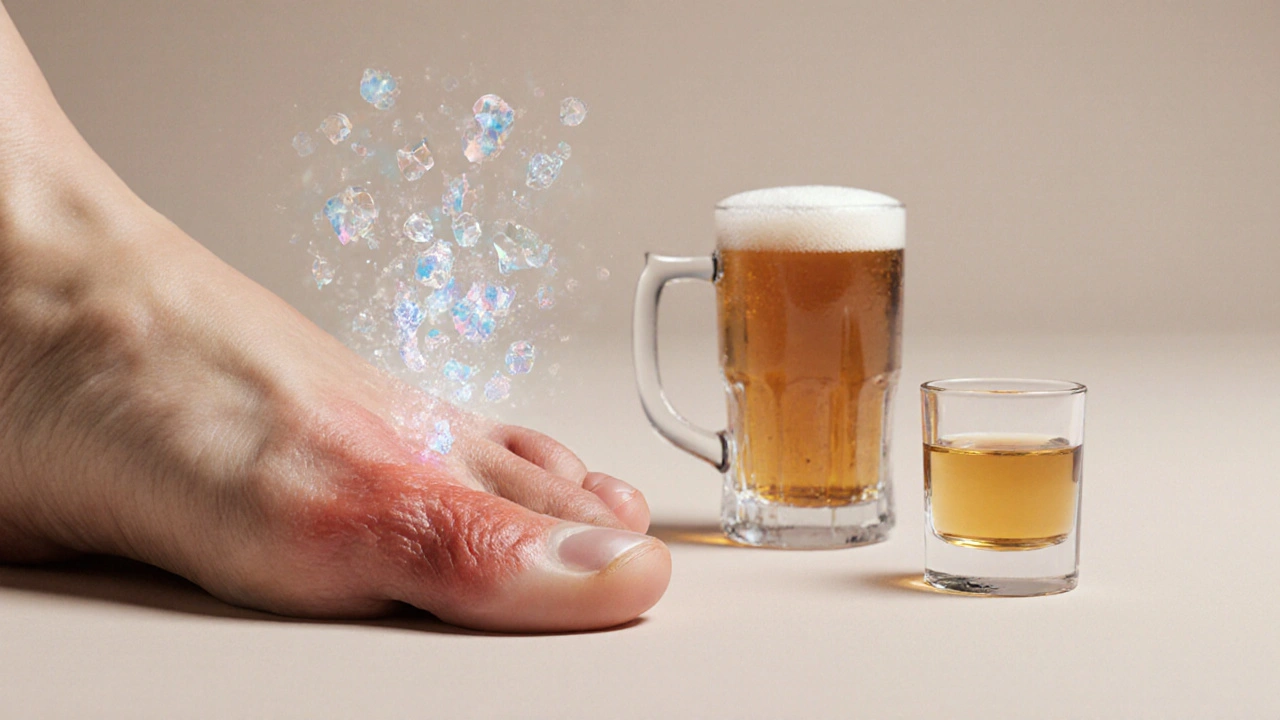Gout and Alcohol: How Drinking Triggers Flares and What to Do
When you have gout, a painful form of arthritis caused by high levels of uric acid in the blood. Also known as uric acid arthritis, it hits joints like the big toe, ankle, or knee with sudden, burning pain. One of the biggest, most ignored triggers? alcohol, a substance that directly interferes with how your body removes uric acid. It’s not just about drinking too much — even a single beer or shot can set off a flare in someone who’s sensitive.
Not all alcohol affects gout the same way. beer, a drink rich in purines that break down into uric acid, is the worst offender. Studies show people who drink beer regularly are far more likely to have gout flares than those who don’t. liquor, like whiskey or vodka, is almost as bad because it slows down uric acid excretion. Wine? It’s a little better, but not safe. Even moderate wine intake can raise your risk. The truth? If you have gout, no alcohol is truly harmless.
Here’s why it happens: your liver prioritizes breaking down alcohol over flushing out uric acid. That means uric acid builds up, forms sharp crystals in your joints, and boom — inflammation, swelling, and pain follow. Alcohol also dehydrates you, making it harder for your kidneys to clear waste. And if you’re already taking medication like colchicine or allopurinol, alcohol can make side effects worse or reduce how well the drug works.
People often think they can just cut back during flares and go back to drinking later. That doesn’t work. Gout isn’t a one-time event — it’s a chronic condition. Every drink is a gamble. One night of heavy drinking can trigger a flare that lasts days, keeps you off your feet, and sends you back to the doctor. And it’s not just about pain — repeated flares can cause permanent joint damage over time.
So what do you do? Start by tracking what you drink and when flares happen. Maybe you notice a pattern: two beers on Friday = swollen toe on Saturday. That’s your signal. Replace beer with water, sparkling water, or tart cherry juice — studies show cherry juice may help lower uric acid. If you’re struggling to quit, talk to your doctor. There’s no shame in needing support. Many people with gout find their symptoms improve dramatically once they stop drinking entirely.
Below, you’ll find real guides from people who’ve been there — how to manage gout while still enjoying social events, what drinks to avoid completely, and how to spot early signs of a flare before it hits. These aren’t theory pages. They’re practical, no-nonsense advice from real patients and doctors who’ve seen what works — and what doesn’t.

Gout and Alcohol: Weighing the Risks and Possible Benefits
Explore how different alcoholic drinks affect gout, learn practical tips for drinking safely, and discover when to avoid alcohol to prevent painful flare‑ups.
October 1 2025